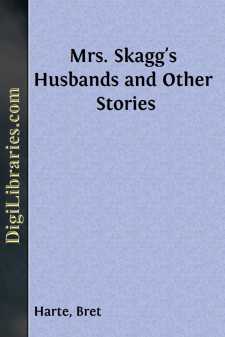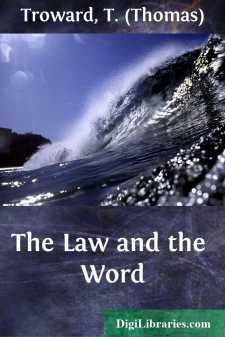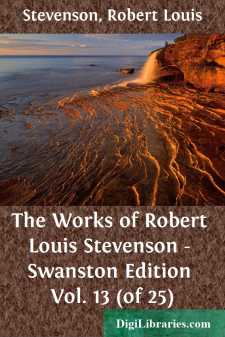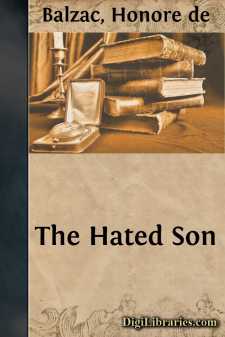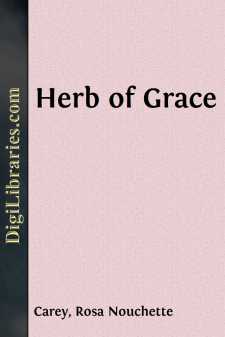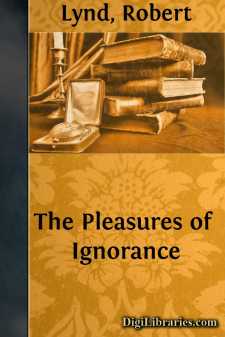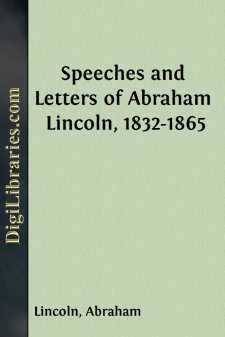Literary Collections
- American 84
- Ancient, Classical & Medieval 14
- Asian 1
- Australian & Oceanian 1
- Canadian 55
- Continental European 121
- English, Irish, Scottish, Welsh 179
- Essays 160
- General 24
- Letters 46
- Middle Eastern 1
Literary Collections Books
Sort by:
by:
Bret Harte
PART I—WEST. The sun was rising in the foot-hills. But for an hour the black mass of Sierra eastward of Angel's had been outlined with fire, and the conventional morning had come two hours before with the down coach from Placerville. The dry, cold, dewless California night still lingered in the long canyons and folded skirts of Table Mountain. Even on the mountain road the air was still sharp,...
more...
by:
Honore de Balzac
MELMOTH RECONCILED There is a special variety of human nature obtained in the Social Kingdom by a process analogous to that of the gardener's craft in the Vegetable Kingdom, to wit, by the forcing-house—a species of hybrid which can be raised neither from seed nor from slips. This product is known as the Cashier, an anthropomorphous growth, watered by religious doctrine, trained up in fear of...
more...
CHAPTER I If I were asked what, in my opinion, distinguishes the thought of the present day from that of a previous generation, I should feel inclined to say, it is the fact that people are beginning to realize that Thought is a power in itself, one of the great forces of the Universe, and ultimately the greatest of forces, directing all the others. This idea seems to be, as the French say, "in the...
more...
IN THE MARQUESAS It was about three o’clock of a winter’s afternoon in Tai-o-hae, the French capital and port of entry of the Marquesas Islands. The Trades blew strong and squally; the surf roared loud on the shingle beach; and the fifty-ton schooner of war, that carries the flag and influence of France about the islands of the cannibal group, rolled at her moorings under Prison Hill. The clouds...
more...
by:
Honore de Balzac
CHAPTER I. A BEDROOM OF THE SIXTEENTH CENTURY On a winter's night, about two in the morning, the Comtesse Jeanne d'Herouville felt such violent pains that in spite of her inexperience, she was conscious of an approaching confinement; and the instinct which makes us hope for ease in a change of posture induced her to sit up in her bed, either to study the nature of these new sufferings, or to...
more...
CHAPTER I Our adventures hover round us like bees round the hive when preparing to swarm.—MAETERLINCK. From boyhood Malcolm Herrick had been a lover of the picturesque. In secret he prided himself on possessing the artistic faculty, and yet, except in the nursery, he had never drawn a line, or later on spoilt canvas and daubed himself in oils under the idea that he was an embryo Millais or Turner....
more...
by:
Robert Lynd
I THE PLEASURES OF IGNORANCE It is impossible to take a walk in the country with an average townsman—especially, perhaps, in April or May—without being amazed at the vast continent of his ignorance. It is impossible to take a walk in the country oneself without being amazed at the vast continent of one's own ignorance. Thousands of men and women live and die without knowing the difference...
more...
by:
Honore de Balzac
STUDY OF A WOMAN The Marquise de Listomere is one of those young women who have been brought up in the spirit of the Restoration. She has principles, she fasts, takes the sacrament, and goes to balls and operas very elegantly dressed; her confessor permits her to combine the mundane with sanctity. Always in conformity with the Church and with the world, she presents a living image of the present day,...
more...
by:
Abraham Lincoln
INTRODUCTION No man since Washington has become to Americans so familiar or so beloved a figure as Abraham Lincoln. He is to them the representative and typical American, the man who best embodies the political ideals of the nation. He is typical in the fact that he sprang from the masses of the people, that he remained through his whole career a man of the people, that his chief desire was to be in...
more...
by:
George Meredith
CHAPTER I. LOVE AT A SCHOOL A procession of schoolboys having to meet a procession of schoolgirls on the Sunday's dead march, called a walk, round the park, could hardly go by without dropping to a hum in its chatter, and the shot of incurious half-eyes the petticoated creatures—all so much of a swarm unless you stare at them like lanterns. The boys cast glance because it relieved their...
more...


